
views
X
Trustworthy Source
PubMed Central
Journal archive from the U.S. National Institutes of Health
Go to source
Both dietary and lifestyle changes can help you lower your blood pressure, but it is extremely important that you consult your health care provider before you make any changes to your routine. Researchers agree that treatments for post-operative hypertension vary depending on your particular circumstances.[2]
X
Research source
Using Dietary Changes When You Can’t Be Physically Active
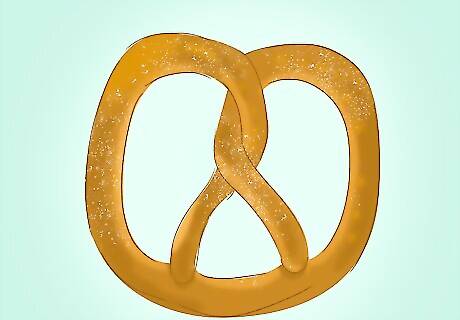
Eat less sodium. Sodium is in salt, so by reducing your salt consumption, you will reduce your sodium intake. Eating salty foods is an acquired taste. Some people who are accustomed to flavoring their food with lots of salt may consume up to 3,500 mg of sodium (in salt) per day. If you have high blood pressure and need to lower it after surgery, your doctor will probably recommend strongly cutting back on salt. This may mean eating 2,300 mg or less of sodium per day. Try the following: Scrutinize the snacks you eat. Instead of snacking on salted foods like chips, pretzels, or nuts, try substituting an apple, banana, carrot or green pepper. Look for canned foods that are not preserved with salt or have low-sodium written on the packaging. Drastically reduce the amount of salt you add to recipes when cooking, or stop adding salt entirely. Instead, season with other spices as appropriate such as cinnamon, paprika, parsley and oregano, for example. Take the salt shaker off the table to remind yourself not to add any later.
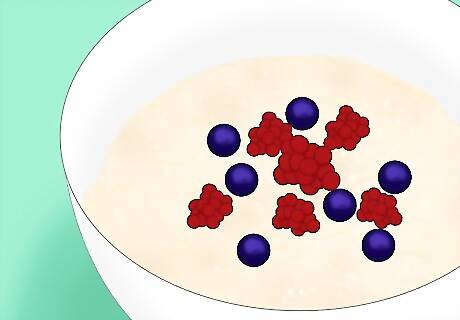
Energize your body for healing with whole-grains. Whole grains contain more nutrients, more fiber, and are more filling than processed white flour. You should get the bulk of your calories from whole-grains and other complex carbohydrates. Aim for six to eight servings per day. A serving is a half a cup of cooked rice or a piece of bread. Up your intake of whole-grains by: Eating oatmeal or grits for breakfast. Top it off with some fresh fruit or raisins to add some sweetness. Checking on the packaging of breads to see if they are whole-grain. Purchasing whole-grain pasta and flour instead of white.
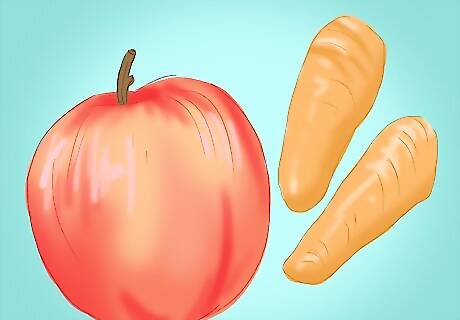
Concentrate on fruits and vegetables. The recommended daily amount of fruits and veggies is four to five servings of each per day. A half a cup is a serving size. Fruits and vegetables contain minerals that are helpful for controlling blood pressure, such as potassium and magnesium. You can increase the amount of fruit and veggies you eat by: Starting your meal with a salad. By eating a salad at the start, you can take the edge off your hunger when you are the most hungry. Don’t wait until the end to eat your salad — then you will already be full and you will be unlikely to eat as much of it. Keep your salads interesting by adding different fruits and vegetables to them. Use salted nuts, cheese, and salad dressings sparingly because they are usually high in salt. Use oil and vinegar instead for dressing that is naturally low in sodium. Keep prepared fruits and veggies on hand for a quick snack. Bring carrot sticks, green pepper slices, or an apple with you to work or school.
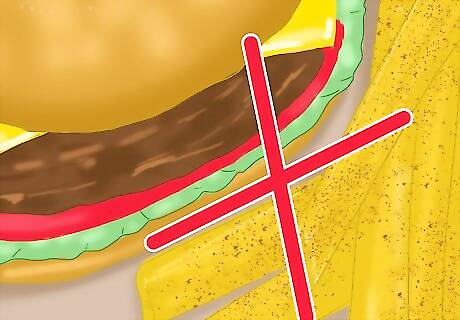
Reduce your fat intake. A high-fat diet can contribute to clogging your arteries and increasing your blood pressure. However, there are many tasty ways to lower the amount of fat you eat, while still getting the nutrients you need to heal after surgery. Dairy products like milk and cheese provide calcium and vitamin D, but they often contain a high amount of fat and salt. Choose low-fat milk, yogurt, and cheeses. Cheeses should also be low-salt. Eat lean poultry and fish instead of red meats. If your meat has fat around the edges, trim it off. Eat no more than six ounces of meat per day. You can also make meats healthier by baking, grilling, or roasting instead of frying them. Cut down on the amount of extra fats you consume. This includes butter and mayonnaise on a sandwich, cooking with heavy cream, or solid shortenings, such as butter or Crisco. A tablespoon is a serving. Aim for three servings or less per day.
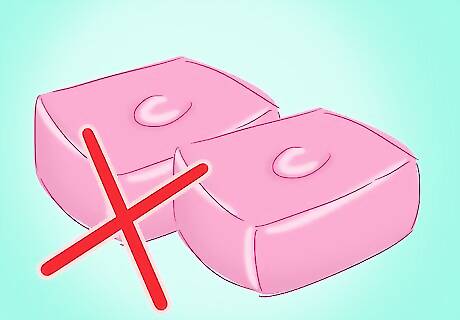
Limit the amount of sugar you eat. Eating processed sugars make you more likely to over eat because they don’t provide the nutrients necessary to make you feel full. Try to eat no more than five sweets per week. Artificial sweeteners like Splenda, NutraSweet, and Equal, can help satisfy a craving, but try to learn to substitute sweet snacks with healthier alternatives like fruits and vegetables.
Living a Healthier Lifestyle after Surgery
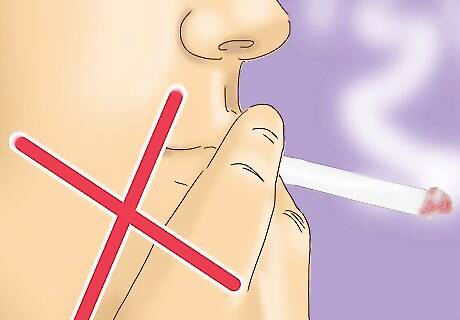
Quit smoking. Smoking and / or chewing tobacco can cause your arteries to become harder and narrower, making your blood pressure rise. If you live with a smoker, ask them to smoke outside so you won’t be exposed to the secondhand smoke. This is particularly important during the time that you are recovering from surgery. If you, yourself, need help quitting, you can try: Talking to your doctor to develop a treatment plan that will work for you. Getting social support from hotlines, support groups, or an addictions counselor. Trying medications or nicotine replacement therapies.
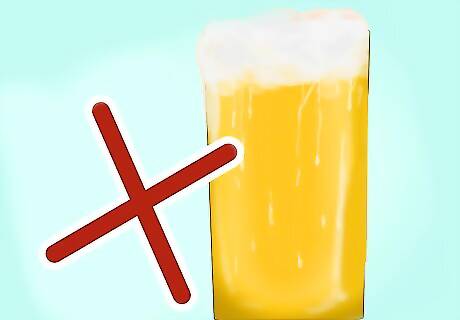
Don’t drink alcohol. If you recently had surgery, you may be on medications to manage any health conditions and help you heal. Alcohol can interact with many medications. In addition, if your doctor has advised you to lose weight, alcoholic drinks are high in calories and will make it difficult to get your weight down If you need help quitting drinking, talk to your doctor about getting medical treatment and support. Your doctor may be able to suggest treatments, support groups, and counseling services to help you.
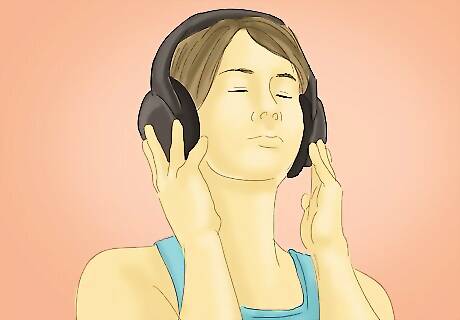
Manage stress effectively. Recovering from surgery is stressful, both physically and emotionally. Some widely used relaxation techniques that can be used even when you may have limited physical mobility include: Meditation Music or art therapy Deep breathing Visualizing calming images Progressively tensing and relaxing each muscle group in your body

Exercise, if your doctor says it is ok. Exercise is an excellent way to reduce stress and lose weight. However, if you are recovering from surgery, it is important that you do not do more than your body can handle. Walking daily is safe exercise after many types of surgery, so check with your doctor if it is appropriate after your surgery, and when you can start this. Consult your doctor and a physical therapist to create an exercise program that will be safe for you. Be sure to attend all follow-up appointments with both your doctor and physical therapist so they can verify that the exercise is continuing to be beneficial for you.
Consulting Your Doctor
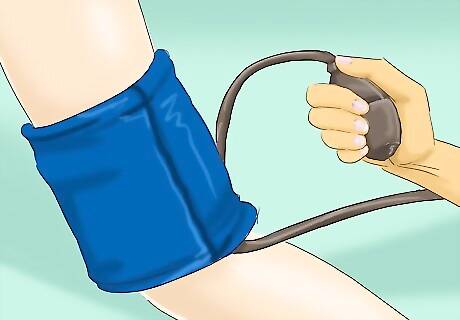
Call your doctor if you think you are developing high blood pressure. Most people with high blood pressure don’t know they have it, because there are often no symptoms. However, symptoms can include: Shortness of breath Headaches Nosebleeds Blurred vision or seeing double
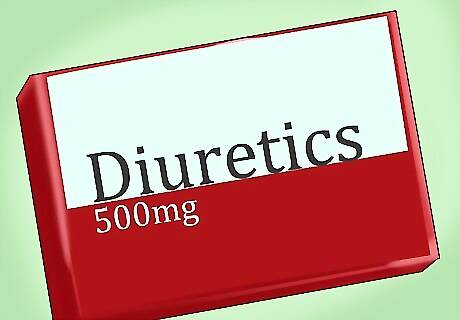
Control your blood pressure with medications if your doctor feels it is needed. Your doctor may feel that it is important for you to take medication while you recover from surgery. Because these can interact with other medications it is important that you discuss all medications with your doctor. This includes over-the-counter medications, supplements, and herbal remedies. Your doctor may prescribe: ACE inhibitors. These medications work by causing your blood vessels to relax. These in particular can interact with a lot of medications, so make sure you are communicating with your doctor about everything you are taking. Calcium channel blockers. These medications widen your arteries and may lower your heart rate. Be aware that you cannot drink grapefruit juice while taking these medications. Diuretics. These medications cause you to urinate more frequently and lower your salt levels. Beta-blockers. These medications make your heart beat more slowly and softer.
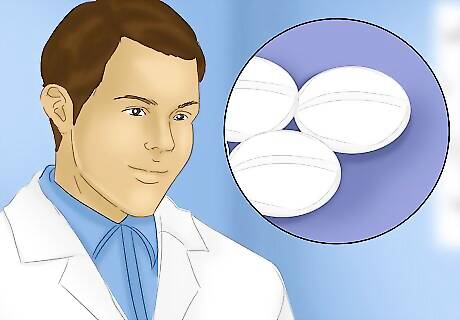
Talk to your doctor about other medications you are on. If you are concerned that other medications you are on or will need to take after surgery might make your blood pressure worse, talk to your doctor. Your doctor needs a complete picture of everything you are taking in order to prescribe the best medications for you. Don’t stop taking medications without discussing it with your doctor first. Medications that can increase blood pressure include: Over-the-counter pain medications. This includes nonsteroidal anti-inflammatory drugs (Ibuprofen and others). Consult your doctor before using these medications to deal with pain during your recovery. Certain birth control pills Various decongestants and cold medications, especially those containing pseudoephedrine

















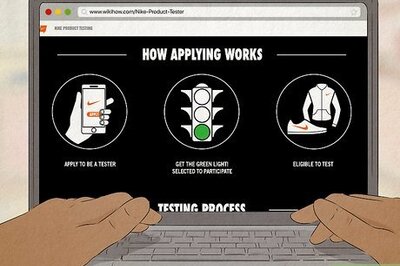


Comments
0 comment